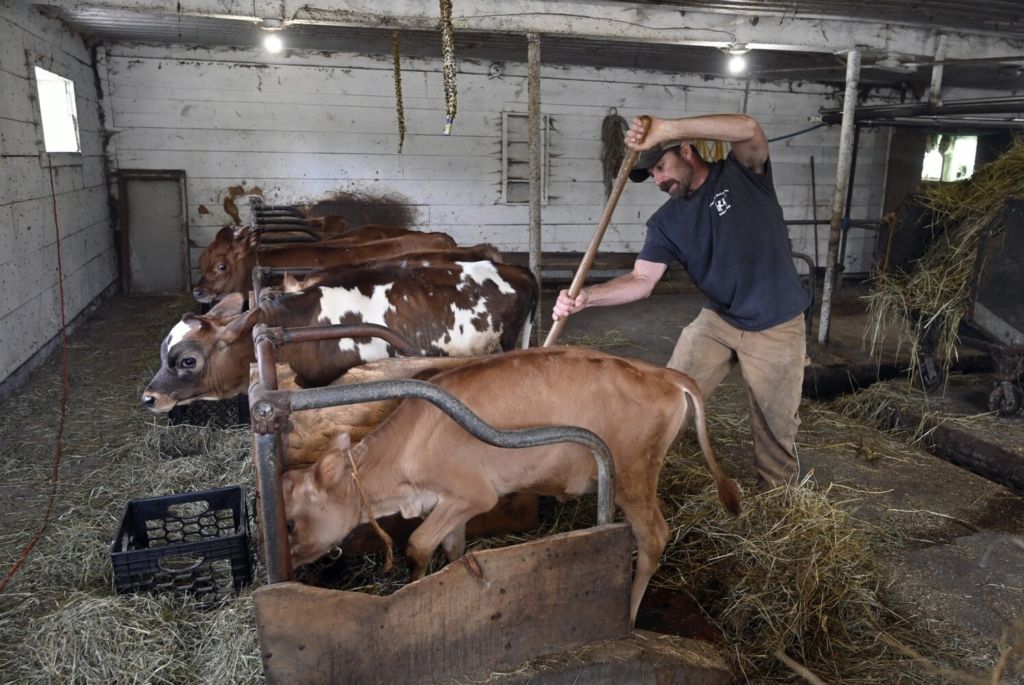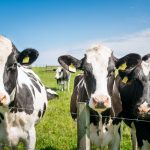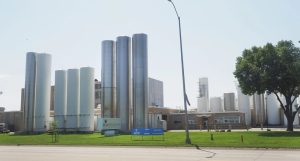
Dear Governor Mills,
You may not expect to hear this from a vegan, but please help Maine’s dairy farmers. The devastating news that Danone is dropping 14 organic Maine farms is just the latest in decades of depressing headlines for dairy farmers.
I come from a Maine dairy farm family, which was divorced from the land in the early 1990s, and I don’t want the same fate for these farm families. Instead, today’s farmers need a 21st-century business plan paired with government-backed financial assistance to transition their operations to the fast-growing agricultural sector: plant-based proteins. Even better, set up a program to help transform all the state’s dairy farms.
Bloomberg Intelligence projects the plant-based food market will rise more than 450 percent from $29.4 billion in 2020 to $162 billion in 2030. Will Maine farmers get a slice of this market? Not without significant investment by the state.
A few Maine farms have already begun moving into the booming national and international marketplace for plant-based proteins. One is Aroostook County farmer Jake Dyer, vice president of the family-owned Benedicta Grain Co. and an agronomist with the Maine Potato Board. He has been growing yellow field peas, a sought-after commodity, since 2015. Dyer sometimes gets higher yields than Midwestern growers, and he thinks more Maine farmers should add the peas to their crop rotations. Until they do, Dyer and other Maine farmers growing the hot crop will be unable to access the larger buyers seeking bulk quantities.
Maine Grains in Skowhegan processes limited batches of yellow field peas into flour and gets regular inquiries from large buyers looking for dried peas. But farmers aren’t growing enough peas in Maine to meet this level of demand, even though the mill has the capacity to process more peas. National brands such as Beyond Meat burgers and Ripple milks rely on yellow peas for their protein content.
The Maine acreage devoted to high-demand crops such as yellow field peas, hemp seeds, oats and canola, all key ingredients in plant-based milks and meats, remains small. Why? Maine lacks the processing and distribution infrastructure to support more farmers.
Over the border, the Canadian government is years ahead of the United States and is investing millions in boosting its plant-based farming sector. Since 2018, the Canadian government, in partnership with industry through Protein Industries Canada, has invested more than $200 million (in U.S. dollars) into the plant-based protein sector. Protein Industries Canada announced in May another $8 million investment with four plant-based food companies, including vegan cheese maker Daiya, to “help producers reach new markets” for pea, canola and blended pea-canola protein ingredients. The handful of Maine farmers growing for the canola oil market ship their harvest to Canada for processing and distribution.
In the last couple of years, a few national businesses and nonprofits have begun working to move dairy farmers out of animal husbandry and into growing protein crops in their fields. But these efforts are limited in scope and scale. A state-based effort led by agricultural officials could have a tremendous impact on these 14 farms, their communities and the Maine economy.
Seeing the photos taken in the barnyards of some of the dairy operations affected by the Danone announcement sent me straight back to the 1970s and ’80s and my grandfather Gilson “Mac” McKenney’s 200-head dairy farm in Richmond. Mature trees flanked the front of the boxy, white farmhouse, and in a town filled with farms, word was that my grandfather’s was one of the best-kept. Yet, darkness lurked beyond the well-trimmed lawns and the then-modern facade of the barn complex.
At the far end of the cow barn, a large door allowed the skid steer to scrape the manure from the concrete floor and deposit it into a waiting trailer. If I sat with my cousins in the hayloft door above, we could look directly down into the reeking brown, liquified waste and feel a rush of terror at the idea we might fall in. Eventually, the contents of the trailer would be dumped into a nearby walled enclosure, covered with a tarp and later spread on the corn fields. Any uncovered manure would make its way to the farm pond when it rained. No one ever checked its impact on the groundwater. A few years later, and across the town line in Litchfield near my parents’ farm, an organic dairy farmer used a similar manure pit system, which generated so much runoff into Pleasant Pond that the lake association paid to put a roof over the manure pit.
The corn and hay fields were managed according to a modern business plan that called for regularly spraying of the herbicide Roundup, then hailed as a miracle and now listed as a probable human carcinogen and banned by a growing list of jurisdictions. The spraying targeted a number of native plants, particularly milkweed, which is crucial to the survival of monarch butterflies (natives to Maine) but is toxic to cows (brought here by colonists).
But my most haunting memories are of the calves, all taken from their mothers within hours of birth. The females were moved to the heifer farm until they were old enough to impregnate for milk. The males were auctioned off for veal. The bereft mothers would moan and bellow for a long time afterwards, and as a child, I always felt a sadness shrouding the cows. The ghosts of lost cows.
Dairy farming hasn’t made financial sense for decades but continues because of massive industry consolidation (10,000-head “organic” dairy farms) and taxpayer-funded federal subsidies. Programs that funnel excess milk into institutions such as schools, even though many students can’t digest it, help deal with the surplus. The federal government created the Milk Price Support Program in 1949, and government dairy purchases reached an annual high of $2.7 billion in taxpayer funds in 1983, according to the industry publication Farm and Dairy. Beginning that same year, the federal government started paying dairy farmers to slaughter their herds and exit the business. A few years later, my grandfather would do just that.
I was startled one unremarkable recent afternoon when I discovered a worn cassette tape, a relic scribbled over but labelled in my late mother’s handwriting, “Dad & Gil, Summer ’83.” I located a working cassette player and popped it in, fast forwarding through Casey Kasem’s Top 40 countdown until I found more ghosts: The voices of my mother, grandfather and uncle, all now dead.
“Son,” my Grandfather’s voice crackled over the tape, sounding as if he’s sitting at a distance from the recording device. “I’m trying to keep this farm because I like farming. You can talk to any farmer you know. Farmers haven’t got it easy these days.”
“You’re going to end up in the red,” my uncle Gil warned.
“What the hell am I going to do?” Grandfather asked. “I like farming. This is my life. I would like to hand it over to you, son.”
That was not to be. On that lost day in 1983 when my mother recorded the conversation for unknown reasons, my uncle, who was 25 at the time, recommended scaling down the operation by “getting rid of some of the low producers.” But this wouldn’t keep my grandfather’s farm in the black. By 1991, the cows, the heifers, the farm buildings and most of its acreage were gone.
The new owner never farmed and instead clear-cut the forest, sold off the topsoil, turned the farmyard into a junkyard and stored hazardous materials on the land. He let the house fall into disrepair, and I hear it will soon be torn down.
I’ve been wondering if any of the 14 dairy farms dropped by Danone will suffer a similar fate. They shouldn’t have to. But they might if the farmers and the state cling to the dying dairy industry rather than following the Canadian path to prosperity. Not all of these dairy farmers will want to become plant farms, but those who want to pass down their farm will notice the appeal. Maine can keep its farmers farming by transitioning them out of animal-based proteins and into plant-based proteins. The rapidly expanding plant-based protein market could mean future prosperity for these 14 farm families, their communities and all of Maine. We need a leader to get us there.

























